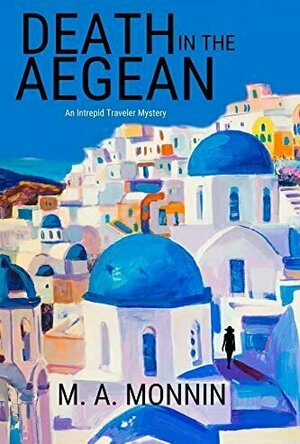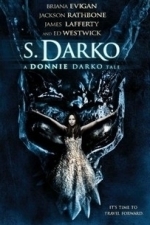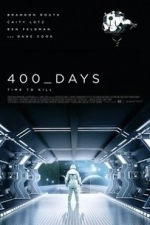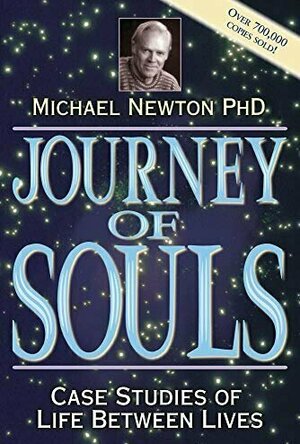
Journey of Souls - Case Studies of Life Between Lives
Book
Learn the latest details and most recent groundbreaking discoveries that reveal, for the first time,...
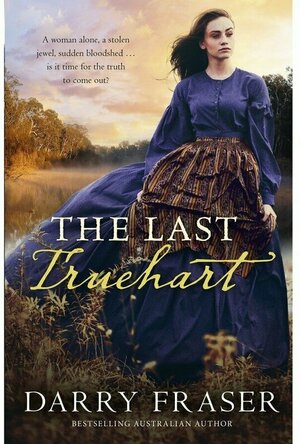
The Last Truehart
Book
1898, Geelong, Victoria. Stella Truehart is all alone in the world. Her good-for-nothing husband has...
Mark @ Carstairs Considers (2488 KP) rated Death in the Aegean in Books
Sep 10, 2022 (Updated Sep 10, 2022)
This is a fun debut. It’s more of a caper than a traditional mystery. The action is fast and never lets up. Capers can seem a bit chaotic to me as a genre, and that’s the case here, but all our questions are answered by the time we get to the climax. Stefanie and Thomas are wonderful main characters we can’t help but root for. The rest of the cast isn’t quite as well developed, but they work for their place in the story. The action takes place mostly on Crete, and the book does a good job of letting us play armchair tourist without slowing the action down. I’m already booking my next trip with Stefanie.

The Tartan Turban: In Search of Alexander Gardner
Book
'Among the many gripping tales of travel and exploration the tale of Alexander Gardner is surely one...
history
Molly J (Cover To Cover Cafe) (106 KP) rated Where the Fire Falls (Vintage National Parks, #2) in Books
Feb 27, 2019
Ms. Barnett takes us to the heart of Yosemite during the '20s. It was such a fun time getting to know the world back then, along with being introduced to Olivia and Clark. Both had decisions to make, both knew there was a lot at stake. Watching them throughout this novel was not only interesting, it was a fresh of breath air! I became a part of the story and loved feeling as though I was right there next to them! My son's grandparents travel the United States in their RV and visit some of the National Parks and I've heard them tell some great things, but they don't describe near like Ms. Barnett does! She truly is wonderful with her character creations and her descriptions!
This is definitely a 4.5 star worthy novel! Clark and Olivia come to life with each page turn, the romance is tender and the messages of truth and accepting God's will are strong through the entire story. From start to finish, Ms. Barnett had me hooked, and I never lost interest! If you are looking for a fun novel that will transport you back in history, then this is a novel just for you. Ms. Barnett's writing style will captivate you and you'll become a fan for life! I can't wait for book 3!!! Well done, Ms. Barnett!
*I received a complimentary copy of this book from the publisher and was under no obligation to post a review, positive or negative.*
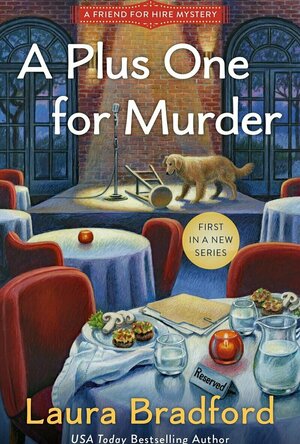
A Plus One for Murder
Book
Entrepreneur Emma Westlake is reinventing herself as a hired friend when murder gets in the way in...
Darren (1599 KP) rated S. Darko: A Donnie Darko Tale (2009) in Movies
Nov 25, 2019
Story: S. Darko starts seven years after the events of Donnie Darko, Samantha (Chase) his little sister has grown up to become a lost soul in the world, drifting with Corey (Evigan), still struggling with the grief of what happened to her brother’s unsolved death. The two women find themselves in a small country town while their car is getting fix.
As the two spend the time in the town, they learn about the secrets, including the estranged war veteran known as Iraq Jack (Lafferty) who is considered a danger in the local area, though he starts getting visits from Samantha talking about the end, will the rest of the town’s secrets get revealed.
Thoughts on S. Darko
Characters – Samantha is the younger sister of Donnie Darko, she has seen her family destroyed by what happened to him, seeing her left alone in the world, drifting with her friend, she has always been spaced out, but now she starts to experience the same visions that Donnie once did, sleepwalking and visiting people with warnings of an impending doom coming to this town. This is a strange twist for the character that starts of shier and more innocent, but soon is trying to find the truth about her own visions. Corey is the confident of the two friends, she likes to party and flirt, which has seen her getting tired of Samantha’s awkwardness. Iraq Jack is a war veteran that has been branded a creep in the town, the police are just waiting to blame him for any crime to get rid of him, but he has a story to tell, one that Samantha can connect too. Randy is the local bad boy that befriends the two girls, he has lost his brother and this has turned him to drink for comfort, while he battles his own demons once the girls arrive in the town.
Performances – Daveigh Chase is the only actors to return to the franchise, she doesn’t give us a bad performance, she does look like the innocent lost soul she is meant to be playing. Briana Evigan as the confident flirty best friend is strong through the film, while the rest of the cast really do what they can with the material, this isn’t one that the actors should be criticised for.
Story – The story here follows the sister of Donnie Darko as she discovers that she has her own journey with the time travelling universe saving rabbit figure that is desperately trying to put the warning out there to this small town. Well that is about as much as I could figure out, much like Donnie Darko, we do get a town filled with secrets that the time travelling is meant to expose or save, but we just try to get an overly diluted version of the genius of the original story. The idea that somebody in this town has their own bunny mask confuses more than anything and by the end you will be left wondering what the point in the story here was, the sequel ideas never seem to understand the uniqueness of the original, losing the direction it is trying to show.
Mystery/Sci-Fi – The mystery in this film comes what is going on, though it doesn’t even feel solved by the conclusion of the film, while the sci-fi side of the film follows the idea of time travel.
Settings – The film is set in a small town which does have a few secrets that people want to keep secret, but are about to be exposed.
Special Effects – The effects are fine they have the keep the goo water trail that we had in the first film.
Scene of the Movie – Umm, pass.
That Moment That Annoyed Me – So many plot holes.
Final Thoughts – This is a sequel that just seems to become pointless, he doesn’t dig any deeper and only confuses the timeline with plot holes everywhere.
Overall: Hopeless Sequel.

The Myth Seekers: The Legacy of Vulcan
Games and Stickers
App
FANTASTIC HIDDEN OBJECT PUZZLE ADVENTURE GAME FROM THE CREATORS OF ENIGMATIS AND GRIM LEGENDS! As...

Change: What Really Leads to Lasting Personal Transformation
Book
Change is often a mystery, one that baffles doctors, therapists, teachers, coaches, parents-and...
Darren (1599 KP) rated 400 Days (2016) in Movies
Jun 20, 2019
When they open the hatch they find themselves questioning what happened but more worrying where they are now.
400 days really seems to be a film that is two different incomplete films, the first half is all psychological but when they leave the hatch it turns into a post-apocalyptic film that never really ends up being dealt with. Each side of the story works well as a single film but both don’t have enough time to really pull off what is really happen. As for the ending it is all left up to you what you think happens which doesn’t help and what happens to two of the character never really gets answered either. This has problems but really could have been great.
Actor Review
Caity Lotz: Emily is the medical officers who is also the former partner of Theo who has to make sure the crew remains sane over the course of the mission as well as keeping the medication up to date. Caity gives us a solid performance but really doesn’t get a chance shine.
Brandon Routh: Theo is the captain of the mission; he has to make the big decision with the information provided by his crew. He doesn’t want to be on the mission and has been on a four-day bender before the mission. Brandon continued to show why he is struggling to live up to the hype he once had early in his career.
Dane Cook: Cole is the engineer on the mission, he is easily the most unpopular on the crew and his cocky attitude leads him to become distant to the rest of the crew. Dane is another actor in this film who hasn’t made much of his career and even with this choice because he tries to do something different.
Ben Feldman: Bug is the brains of the crew making all the hard decisions and is clearly the smartest of the four crew members on the ship. He had to leave his young family behind for the mission which haunts him every day of the mission. Ben does a good job even if he does end up being a very generic character for the genre.
Support Cast: 400 days has a supporting you only see half way through the film but they end up being very generic.
Director Review: Matt Osterman – Matt brings us a great idea that doesn’t quite get pulled off effectively.
Mystery: 400 days keep you guessing what is actually happening to our characters.
Sci-Fi: 400 days puts our character in the experiment which would include space travel and a post-apocalyptic world.
Thriller: 400 days does keep us guessing from start to finish.
Settings: 400 days has two good settings the space ship which creates the isolation and the town the end up in that shocks.
Special Effects: 400 days uses the effects for certain moments but tries to keep everything need to the minimum.
Suggestion: 400 days is one to try, it does have a few flaws but you can see a couple of good points. (Try It)
Best Part: The ideas are good.
Worst Part: Not enough time for each story, both sides could have been short to increase the second one.
Believability: No
Chances of Tears: No
Chances of Sequel: No
Post Credits Scene: No
Oscar Chances: No
Runtime: 1 Hour 31 Minutes
Overall: Something Missing but good ideas being created.
https://moviesreview101.com/2015/11/02/400-days-2015/
